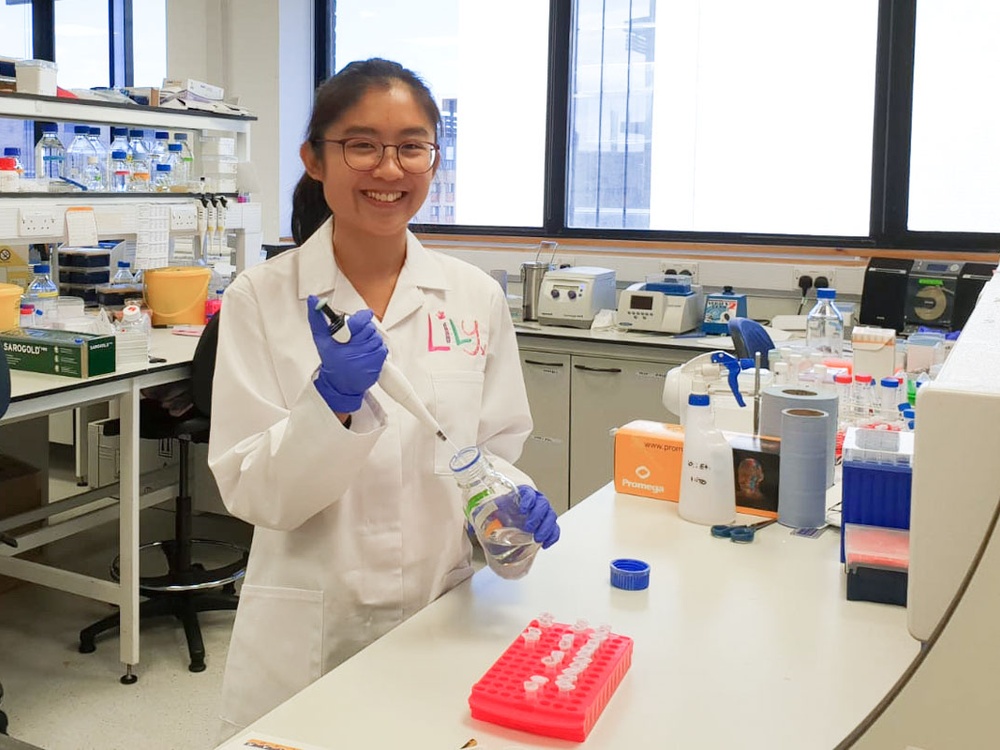Lily-funded scientists are working every day to expand our understanding of mitochondrial disease. The work they do is vitally important, improving the lives of people affected by the disease today, and bringing us closer to a future when a breakthrough cure is a reality. And it's all made possible thanks to you, our amazing Lily supporters, donors and fundraisers.
Yasmin Tang, a PhD student based at the Wellcome Centre for Mitochondrial Research at Newcastle University, is the newest addition to Lily's research staff. Yasmin recently took over from Ruth Glasgow, who has completed three years of Lily-funded research at the centre. Like Ruth, Yasmin is working to identify new causal gene mutations in patients with mitochondrial disease, and investigate their relationship to different clinical phenotypes (the characteristics of the disease observable in patients).
The work is painstaking and highly skilled, involving careful analysis of complex bioinformatic data taken from patient cell and tissue samples. The benefits, though, are manifold: the information gained from the study is already benefitting patients, and helping to advance other areas of mitochondrial disease research.
"I'm really excited by this research," says Yasmin. "It can be tiring, because we are going through vast amounts of data on the computer, looking for candidates for causal gene variants. But it's really interesting, and I'm eager to see what we can find. I'm really interested in the molecular biology of disease mechanisms, particularly how one organelle within a cell can cause such a huge impact on the whole body function."
When a new variant of a causal genetic mutation is identified, it gets added to a steadily expanding database which already contains several hundred known gene mutations.
"We are improving the reservoir of known genetic mutations that cause mitochondrial dysfunction, which in turn will help advance research," says Yasmin. "We hope to use the information to help improve genetic counselling for families, so they can prevent transmission of mitochondrial disease in family planning, and also know what reproductive options might be available to them."
Patients with a confirmed genetic diagnosis of mitochondrial disease can take part in drug trials and clinical studies that are relevant to their specific type of the disease, so expanding the database is also helping to drive the development of potential therapies and treatments.
"There is no cure for mitochondrial disease at the moment, but by identifying the causes, and increasing our understanding of the molecular mechanisms involved, the knowledge can be applied to develop better therapies and improve diagnosis," continues Yasmin. "As we expand the range of known causal genetic variants, then it will be easier to detect it at an earlier stage, and help with diagnosis and treatment."
Yasmin's research team is led by Prof Robert Taylor, Professor of Mitochondrial Pathology at the Wellcome Centre for Mitochondrial Research and a member of The Lily Foundation's Medical Board.
"It's a really welcoming environment, and the team has been really helpful and inspiring," says Yasmin. "There's a wide range of expertise here, so I'm learning a lot. There is more new science emerging that relates mitochondrial dysfunction to other neurological disorders, which shows there's still a lot more to be discovered in this area. As a researcher, I feel really fortunate to be doing this work."

